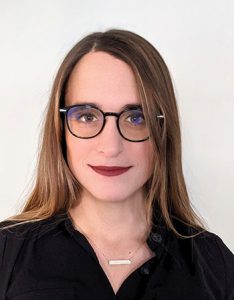The Philadelphia Trans Wellness Conference is Looking for Trans-Led Workshops, Your Experiences, Your Voice in 2022
By: Chris Gilmore/TRT Reporter—
PHILADELPHIA—The Mazzoni Center announced in mid-February their decision “to pivot the 2022 edition of its Philadelphia Trans Wellness Conference, PTWC, to a virtual format due to concerns over the lingering pandemic.” In lieu of the decision, the Conference coordinators are centering the workshops on trans people’s experiences.
The PTWC is not only an event for trans and nonbinary people but also a favorite of many people who love and have family members who are trans.
“I love going there with my transgender wife; supporting her and her journey is supporting us,” said Sam Roland, a junior Villanova University student who attends each year whether in person or virtually. “I support the work it does because it matters to so many of our friends, family, to me, and specifically to my wife, who is trans, black, beautiful, and proud.”
Call for trans-led workshops
It is the conference’s aim to center the event on trans people’s lives from the perspective of trans experiences, lived or learned and acquired. Because of that, their intent is to have the community members themselves lead the conversations and the workshops.
“These are not buzzwords, but a recognition of the truth about where expertise is held regarding trans health and wellness,” said Sinéad D. Murano (They/Them/Theirs, She/Her/Hers), PTWC’s Logistics Coordinator. “It is also an indictment of a cisnormative healthcare system that de-prioritizes the voices of trans patients and often seeks to disempower us.”
Murano attributes the community’s reliance on one another to “lived experiences” because the “mainstream narratives of gender-affirming care often don’t match up.”
“This is why we say that trans people hold the most valuable form of expertise: lived experiences. This is why we want community members to submit workshops based on their lived experiences,” Murano added. “Whether it’s your own journey from one provider to next, your experience of after-care for surgery, transition storylines, debunking medical myths, the journey across the HRT prescription spectrum, etc. trans folks all have tangible and life-saving knowledge stored inside themselves, body, and mind.”
Teaching health providers as patients?
Several members of the trans community, when searching for health care providers, have found many medical obstacles. There are instances in which trans people find themselves having to teach practitioners about transgender health, needs, the trans experience, etc.
“I went to see a medical provider and he said he liked opening his practice to trans people, but he had a tough time understanding ‘it all’ as he asked me to teach him more about trans men,” said Joshua Sanders from central Massachusetts. “I felt compelled to give him a trans 101 course while I waited to be seen and treated with dignity and respect. That shouldn’t happen. What I’ve truly learned about my health, I’ve learned mostly on my own.”
Thus, sharing self-taught knowledge and lived experiences is part of trans people’s own survival skills for themselves and within their own community.
“Many trans & gender-variant folks can immediately think of a handful of times, (in our own lives or those of our kin) that other community members debunked something in mainstream narratives regarding trans health stories we were told,” Murano told The Rainbow Times. “How many community members have learned just as much if not more about trans healthcare from other members of the community than their providers? How many thousands of personal testimonials from trans folks refute the clinical narratives that adhere to outdated & shallowly researched ‘data.’”
Health from a systemic perspective
For this community, peer-to-peer learning is also a crucial component to survival in a society that often instead of ameliorating the obstacles that trans people face, has hindered advances and, as a result, hurt the mental and physical wellbeing of many members of the LGBTQIA+ mainstream and communities of color.
“As trans people, we are the real experts on our bodies, our health outcomes/concerns, and the realities of living while trans within oppressive healthcare and legal systems,” said Von R. Eaton PAQ Steering Committee, GLSEN Philly Board of Directors, Behavioral Health CERC. “The majority of research done on trans healthcare up until very recently has been done by cisgender practitioners through the lens of the medical model, a lens that is rooted in bioessentialism, white supremacy, and cisheteropatriarchy.”
Trans people saving lives
“Every piece of knowledge that you’ve gained on your journey is a revelation to somebody else, no matter how fundamental it feels to you,” said Murano. “This is how our community has always survived, not through institutional support but through mutual aid and information sharing. I believe this is also how we can radically transform trans health and wellness, by trusting our own expertise.”
And she asserts that selection committees are ambitiously looking for those trans submissions because when community members share their “expertise with others, ‘we’ save lives.”
“They want workshops that are trans-led, meaning they want trans people to be leading these conversations about what does and doesn’t work for us,” she added. “They want to foster trans-leadership, meaning our selection committees are made up of community members who are selecting workshops that elevate the voices and knowledge of our kin. They want to elevate lived experience, meaning stories about our real experiences and our real bodies instead of presenting outdated studies.”
And such expertise frequently comes from the need to find answers to questions and concerns that are often not addressed or known by many health providers who are unaware of the intricacies that trans people go through medically.
“Trans and gender-diverse individuals are the authors of their own lives and are the true experts,” said Dallas Ducar, TransHealth Northampton CEO, Medical CERC. “This call for proposals is truly driven by us and for us. We know that our lived experiences provide such a rich wealth of knowledge and wisdom and I for one am so proud to rely on that history to raise the bar to ensure we have a conference that is truly authored by the experts, our communities.”
Trans health care providers, who have also withstood similar health-related paths, particularly understand such complexities of transgender care, as it relates to reliance, because of their lived experiences as members of this community too.
“One of my most powerful assets as a physician at Mazzoni is my identity as a trans woman,” said Billie Swiggard, MD Ph.D., Medical CERC. “Not only does it promote trust and communication, [but it also] informs my questions and strategies. For example, I’ve never met a trans or gender-nonconforming patient who did not have some degree of PTSD. I frequently offer my own history of abuse and bullying as a way of opening the door to trauma-informed care.”
Regardless, many mainstream and QTPOC, and nonbinary people rely on the PTWC each year for more than just health care
and services. PTWC, to many, means community, a place where they can feel accepted, affirmed, and valuable, all without having to worry about anything else, just breathing.
“The PTWC is my favorite annual conference,” said Kim Watson, Co-Founder, Community Kinship Life, aka CKLife, and LGBTQ Coordinator for The NYC Public Advocate Office.
Anyone interested in submitting general track proposals can do so by March 15 at 11:59 p.m. by visiting transphl.org. To register for the PTWC, scheduled to run from July 21-23 virtually, or to join their waiting list, visit PTWC’s website. Decisions on submissions are expected to begin on April 18. If a workshop is selected, you must confirm participation by April 21.
Other PTWC Stories:












